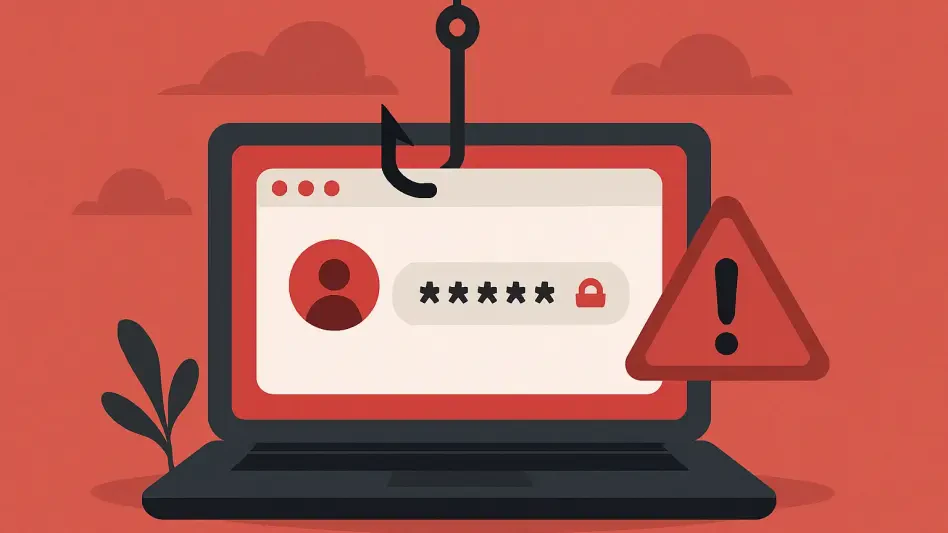The recent cybersecurity collapse of a longstanding British transportation company serves as a sobering reminder of the vulnerabilities that even well-entrenched businesses face in today’s digital landscape. KNP Logistics Group, a 158-year-old firm, was brought to its knees by a ransomware attack that exploited weak password practices. This failure in cyber defense resulted in catastrophic setbacks leading to the company’s demise. The downfall underscores the harsh reality that major organizations are not invincible in the face of cyber threats, emphasizing the need for a proactive stance in cybersecurity measures.
A Flawed System in an Age of Cyber Threats
Exploitation of Weaknesses
In a world where cyber threats have become increasingly sophisticated, basic security oversights can lead to devastating outcomes. In the case of KNP Logistics, hackers—presumably part of organized international crime syndicates—managed to infiltrate the company’s network through poor password management. This critical security lapse offered them unobstructed access, enabling them to move laterally through the firm’s systems. By leveraging weaknesses such as outdated IT infrastructure, the attackers bypassed the company’s defenses. The lack of integral security features, like multi-factor authentication, dramatically contributed to this breach, illustrating an appalling lack of preparedness against advanced persistent threats.
The growing sophistication of threat actors requires corresponding sophistication in defense strategies. Unfortunately, the missteps at KNP Logistics highlight a recurring theme seen across various industries: a tendency to underestimate the importance of robust cybersecurity frameworks. The ramifications of this negligence were immediate and lasting, proving that even a longstanding institution is not impervious to technologically savvy adversaries. The logistical sector’s vulnerabilities particularly mirror a broader trend where reliance on digital platforms exposes businesses to similar perilous fates if they do not adopt stringent security practices.
Emerging Trends and Gaps
The high frequency of cyber breaches linked to compromised credentials sheds light on a glaring issue in the digital age: poor password management. For sectors like logistics, which are decked with digital transformations, such oversight can lead to security breaching events as seen with KNP. Assessments of the current state reveal regulatory gaps where the guidelines on password maintenance remain voluntary rather than enforceable mandates. This condition allowed KNP to operate without robust checks until it was too late, exemplifying an industry-wide challenge that calls for tighter regulatory reinforcements.
Expert evaluations suggest a pressing need for organizations in critical industries to embrace modern security concepts such as zero-trust architectures and AI-driven threat detection systems. Additionally, a cultural shift in security awareness among employees is imperative; technology alone cannot defend against breaches. As organizations entrust more of their operations to digital infrastructures, they must equally strive for comprehensive training programs and enforceable security policies that consider the dynamic landscape of cyber threats. Coincidentally, KNP’s collapse could catalyze industry-wide improvements by signaling the dangers of inadequate cybersecurity fortifications.
The Broader Impact and Lessons Learned
The Ripple Effects
Beyond the immediate impact on KNP’s operations and its employees, the collapse carries broader implications for the logistics and transportation sectors. Competitors and peers alike are now faced with pressing questions about their resilience against similar threats. The incident serves as a critical lesson on the importance of prioritizing security within the contextual framework of supply chains. Hackers today exploit every possible technological vulnerability, disrupting global exchange routes. Companies not only need to secure their IT environments but also ensure data integrity along the entirety of supply chains.
Addressing these issues requires collaborative efforts from business leaders and policymakers to implement and advocate for a new standard in cybersecurity practices. This includes not only investing in sophisticated defensive measures but fostering a culture of accountability and awareness. The misfortunes of KNP have provided a stark reminder of the consequences of inaction, encouraging industries to align on best practices and collectively uplift their digital defenses. While technological advancement presents numerous opportunities, it also demands an intrinsic commitment to keeping up with potential threats.
Survival in the Digital Age
This narrative reflects a widespread understanding that cybersecurity has become an essential element of survival. No longer can it be dismissed as a discretionary expense for organizations operating within interconnected, digital ecosystems. The downfall of KNP Logistics is a call to action for industry stakeholders to reassess their security strategies fundamentally. Premium must be placed on creating a multi-layered defense strategy, which integrates the latest technological advancements with adaptive human-centric security practices. Secure practices like encrypted communications, restricted access to sensitive data, and comprehensive risk assessments must become standard.
The unsettling reality highlighted by KNP’s downfall is indeed a learning opportunity. It accentuates the urgent demand for active engagement and ongoing evaluation of systems and practices to future-proof organizations against inevitable threats. Leaders must pivot from reactionary measures to preemptive action plans, adopting frameworks that address both technological and human factors. By doing so, businesses can mitigate risks, protect assets, and ensure resilience against evolving cyber threats.
Look to the Future
The collapse of a historic British transportation company due to a cyberattack serves as a poignant reminder of the vulnerabilities even longstanding businesses face in today’s digital era. KNP Logistics Group, with a legacy stretching 158 years, was devastated by a ransomware attack that took advantage of inadequate password protocols. This failure in their defense against cybercrime led to severe operational setbacks, ultimately resulting in the company’s downfall. This incident highlights the harsh reality that even major organizations, despite their size or history, are not immune to cyber threats. The situation underscores the critical need for businesses to adopt a proactive approach to cybersecurity. It is essential for companies of all sizes to constantly update and strengthen their cyber defenses to protect against increasingly sophisticated threats. The KNP incident sends a clear message about the importance of robust cybersecurity measures to safeguard against similar catastrophic outcomes in our rapidly evolving digital landscape.








